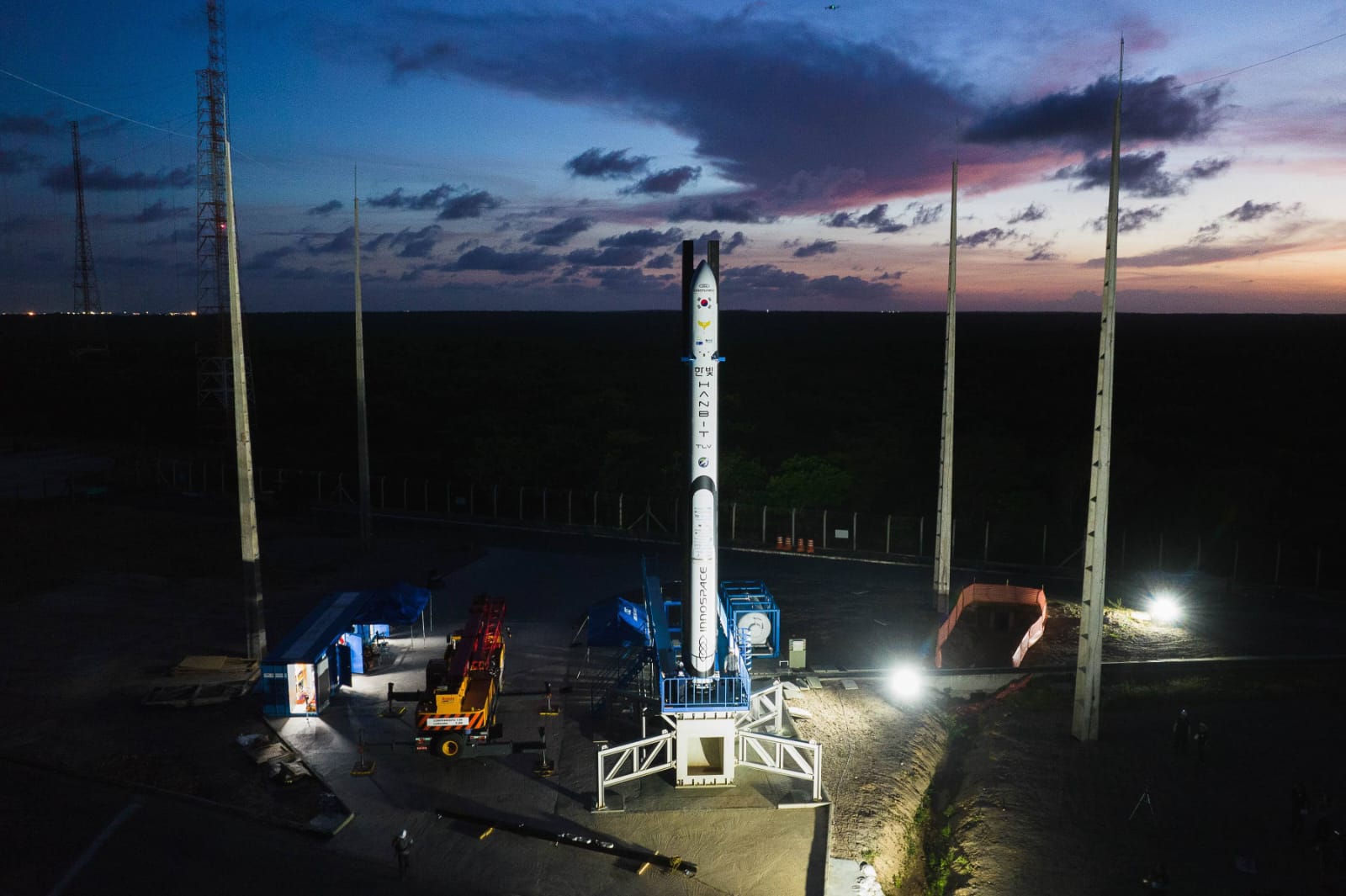A technical issue prevented the launch and a new date will be evaluated
A technical issue prevented, this Wednesday (12/21), the experimental launch of the HANBIT-TLV rocket in conjunction with a private company from another nation, from the Alcantara Launch Center (CLA), in Maranhão.
The rocket passed all safety tests and received approval for the final stage of flight with no problems. Now, professionals from the South Korean company Innospace and the Alcantara Launch Center are conducting a detailed technical evaluation in order to identify and correct the problem and, maintaining safety, the next launch can be scheduled for a new date to be defined.
Even so, the operation is considered partially successful, considering all the steps taken before the launch attempt. These stages include the joint operation between Brazilian institutions and the South Korean company in the development of new technologies, the evolution of the Alcantara Launching Center structure, the complex logistics of rocket transportation, and also the gains for the national industry, commerce, and service sector around the Center.
“However, important lessons were learned so that the technical issues associated with the unprecedented nature of the operation can be overcome for future launches,” said the General Coordinator of Operation Astrolabio, Air Force Colonel Rodrigo José Fontes de Almeida.

About the rocket and the payload
The HANBIT-TLV is a satellite launcher that measures 16.5 meters long and weighs 8.4 tons. The rocket, developed by Innospace, uses a patented electric pump feed system, as well as hybrid technology, i.e., with propellants based on liquid oxygen and a paraffin mixture, which provides a stable chemical composition, faster manufacturing, and lower cost.
The vehicle is equipped with a payload called the Inertial Navigation System (SISNAV), developed by military and civilian professionals from the Institute of Aeronautics and Space (IAE), which is part of DCTA.
SISNAV is an essential Brazilian technological experiment for autonomous rocket navigation, which will allow Brazil a major step towards independence in the development of vehicles for launching satellites of all types. The SISNAV project is part of the Navigation and Control System (SISNAC), planned for the FAB’s Microsatellite Launching Vehicle (VLM), focused on low orbits in the so-called New Space.
This mission promotes the technical and operational development of the teams involved in hybrid propulsion technology, evaluation of the SISNAV flight performance and systems for tracking, transmission and reception of data. In this way, the Brazilian Space Program will be strengthened, showing the world Brazil’s capacity to develop aerospace technologies.
*** Translated by the DEFCONPress FYI Team ***
